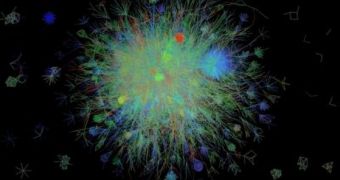Plant biologists and agricultural researchers will soon be able to benefit from the tremendous advantages brought forth by a new device, called AraNet. The machine is capable of characterizing yet-unknown plant genes, in a process that has unprecedented speed and accuracy. The computational model essentially predicts gene function, and carries a total of 19,600 genes in its databases, each of them connected to others via more than one million links. According to the experts behind it, AraNet can increase the discovery rate of genes associated with a certain trait ten-fold, e! Science News reports.
“In essence, AraNet is based on the simple idea that genes that physically reside in the same neighborhood, or turn on in concert with one another are probably associated with similar traits. We call it 'guilt by association.' Based on over 50 million scientific observations, AraNet contains over 1 million linkages of the 19,600 genes in the tiny, experimental mustard plant Arabidopsis thaliana,” Carnegie Institution Department of Plant Biology expert Sue Rhee, who is also the corresponding author of the new study, says.
“We made a map of the associations and demonstrated that we can use the network to propose that uncharacterized genes are linked to specific traits based on the strength of their associations with genes already known to be linked to those characteristics,” Rhee adds. The Arabidopsis thaliana is a good target of investigations because nearly 30 percent of its genes have not yet been functionally mapped, whereas another third are just barely understood. “AraNet has the potential to help realize the promise of genomics in plant engineering and personalized medicine,” the expert says.
At this point, the computer model features more than 4,479 uncharacterized genes. However, a large portion of them are inter-connected to others that have been thoroughly analyzed, so hopes are high that their functions will be discovered soon. The thing is that, the more genes are discovered, listed and analyzed, the higher the chances that the connections created via AraNet will gradually eliminate all the dark spots in plant genomes. This could lead to the development of better plants, able to withstand drought and other natural disasters.
“Food security is no longer taken for granted in the fast-paced milieu of the changing climate and globalized economy of the 21st century. Innovations in the basic understanding of plants and effective application of that knowledge in the field are essential to meet this challenge,” Rhee concludes.

 14 DAY TRIAL //
14 DAY TRIAL //